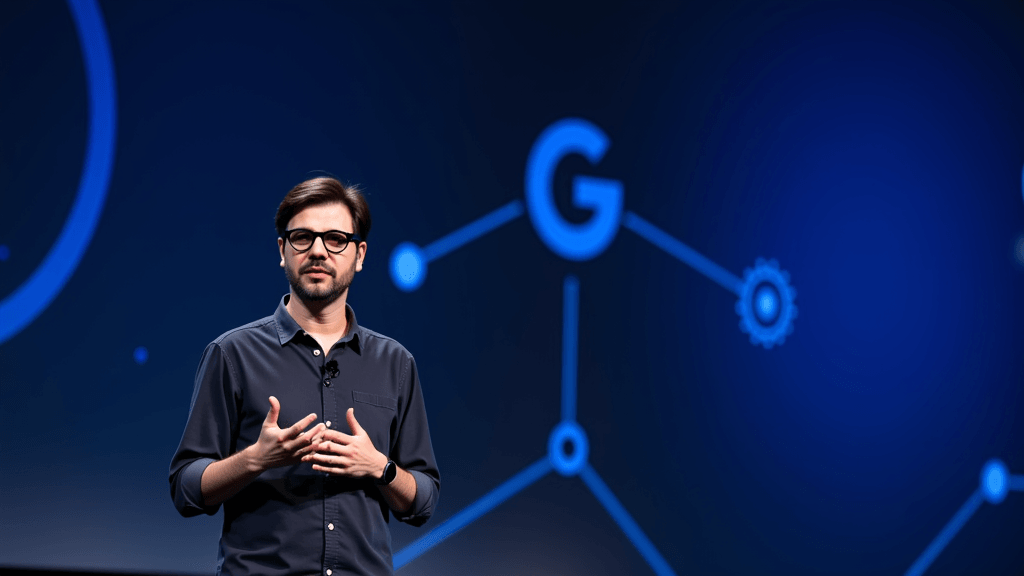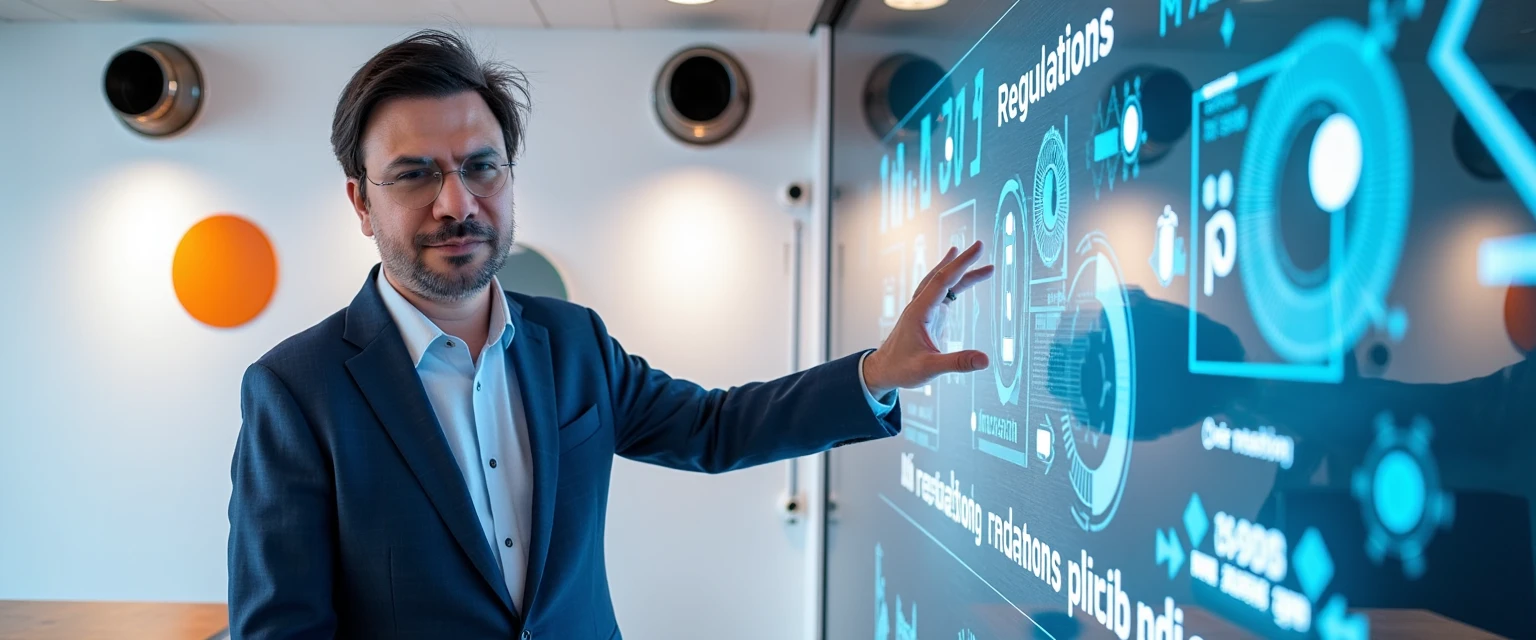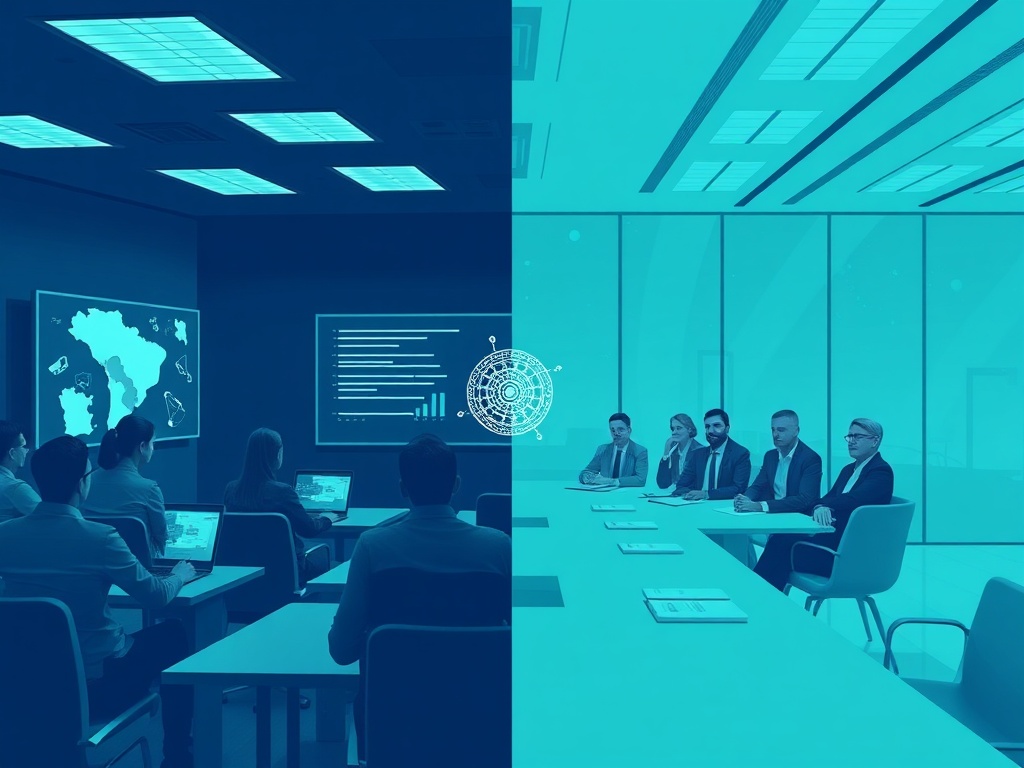US$ 65 Billion in Data Centers While Young IT Workers Are Unemployed - Why This Paradox Defines Brazil's Future
August 11, 2025 | by Matos AI

While Rio de Janeiro announces the largest investment in AI infrastructure in Latin America - US$ 65 billion to create “Rio AI City” - an entire generation of newly graduated IT professionals is facing the biggest challenge of their careers: getting their first job in a market transformed by the very technology they studied.
This paradox of the last 24 hours in Brazil reveals something fundamental about how we are navigating the AI revolution. On the one hand, 60% of Brazilians believe that artificial intelligence can create more jobs - a rate above the world average. On the other side, young people send out thousands of CVs without even getting an internship, while AI tools are precisely replacing entry-level functions in the sector.
The Biggest Investment in AI in Brazilian History
The Rio AI City project is no joke. Located in the Barra da Tijuca Olympic Park, the complex will have an energy capacity of up to 3.2 GW - the equivalent of the daily consumption of 6 million homes. The first phase, with 1.5 GW, is scheduled for 2027, and the goal is audacious: position Rio among the world's top ten AI hubs by 2032.
Join my WhatsApp groups! Daily updates with the most relevant news in the AI world and a vibrant community!
- AI for Business: focused on business and strategy.
- AI Builders: with a more technical and hands-on approach.
This investment will put Brazil on the global AI infrastructure map, competing directly with Silicon Valley, London and Singapore. The project promises to generate more than 10,000 skilled jobs and attract global technology companies.
But here is the first paradox: who are these jobs for if traditional IT professionals are being replaced by AI itself?
The Harsh Reality of New Graduates
While we celebrate the billions invested, an entire generation is experiencing the frustration described in the New York Times report. Cases like that of Manasi Mishra and Zach Taylor - young people who sent out thousands of CVs without success - are not the exception, they are the new normal.
AI tools for programming are eliminating entry-level positions, those traditionally held by recent graduates. Unemployment rates for Computer Science and Computer Engineering graduates are more than double those of other fields.
And it doesn't stop there. Mo Gawdat, former director of Google, goes furtherHe calls the official narrative that AI will create new human jobs “nonsense”, warning that even executives themselves could be replaced by general AI (AGI).
What China Teaches Us About Preparation
As we debate the impacts of AI, China has been implementing AI education in elementary school since 2018. The country trains around 100,000 AI professionals a year, holds 40% of the global scientific output in the sector and 70% of the patents.
Most importantly: 80% of Chinese students use AI tools, compared to 40% in the US. They're not just studying about AI - they're learning to work with it from an early age.
It reminds me of the early days of startup acceleration in Brazil. Those who adapted quickly to the new tools and methodologies came out ahead. Those who resisted were left behind.
The Real Opportunity is in Transformation
The question isn't whether AI will impact jobs - it's already doing that. The question is how we prepare to work **with** AI, not against it.
Look at the practical cases that are emerging in Brazil:
- ClickBus invested R$ 15 million in conversational AI to facilitate ticket purchases
- Law firms adopt RAG architecture to support legal decisions
- Creative professionals use AI to restore historical memories
These are not cases of substitution, but of **amplification** of human potential. The difference? These professionals have embraced AI as a tool, they don't see it as a threat.
Why Companies Still Resist
Adopting AI requires more than technological investment - requires a review of the internal structure, strategic planning and, above all, cultural change.
In my experience supporting thousands of startups, I've seen that the organizations that thrive are those that understand a fundamental truth: technology without organizational transformation is a waste of money.
The Brazilian companies that are really capturing value with AI aren't the ones that have bought the most expensive tools. They are the ones that have rethought processes, trained teams and created a data-driven culture.
Brazil's decisive moment
We have a unique scenario forming:
- Robust infrastructure: US$ 65 billion being invested in Rio AI City
- Positive mindset: 60% of Brazilians see AI as an opportunity
- Regulatory framework: Brazil is among the world leaders in AI regulation
- Active ecosystem: Startups like the one that beat medicine in entrance exams show our capacity for innovation
But we also have the challenge of a generation of IT professionals who need to reinvent themselves **now**. And here lies the opportunity: whoever manages to make this transition first will ride the wave, not be swallowed up by it.
The New Skills the Market is Looking for
Based on what I see in the startups I mentor, the most valued skills today are not the traditional ones of pure programming. They are:
- Solution architecture: Knowing when and how to use AI in different contexts
- Context engineering: Create prompts and flows that generate real value
- Systems integration: Connecting AI with existing infrastructure
- Analysis of results: Measuring and optimizing the performance of AI systems
- Ethics and governance: Ensure responsible use of technology
Take a look: none of these skills existed 3 years ago. It's a transformation as profound as the one we've experienced in the transition to digital.
Lessons from the Chip Wars
China presses US to relax controls on AI chips, while Brazil builds its own infrastructure. It reminds me of the early days of the internet in the country - those who invested in connectivity came out ahead.
The difference is that today we have resources, knowledge and, above all, **urgency**. We cannot repeat the mistakes of the past and fall behind in the technological revolution.
The GPT-5 and Definitive Democratization
Among the news items that caught my attention was the release of GPT-5 for all users, even in the free version. This completely changes the game.
When advanced AI tools become accessible to everyone, **the competitive advantage no longer lies in having access to technology, but in knowing how to use it strategically**.
It's like in the early days of smartphones: it wasn't whoever got the first iPhone who won, but whoever first understood how to use that technology to solve real problems.
What it means for you
If you're an IT professional facing difficulties in the market, don't give up. **Reinvent yourself. The demand for professionals who know how to work with AI has never been higher - it's just changed profile.
If you're an entrepreneur, understand: AI is not an IT project, it's a business transformation. And it needs to be treated as such.
If you're an investor, take a close look at Rio AI City and similar initiatives. We are witnessing the formation of the country's new digital infrastructure.
Final Reflection: Paradox as Opportunity
Paradoxes usually reveal moments of transition. And transitions, by definition, are opportunities for those who know how to see them.
Brazil has all the elements to be a protagonist in the AI era: investment, talent, optimism and necessity. What defines our success is the speed with which we manage to turn this potential into reality.
In my mentoring work, I help startups and professionals navigate exactly these technological transitions. Because I believe that, deep down, all revolutions boil down to one simple thing: **prepared people find opportunities where others see only problems**.
What about you? Will you ride the wave or be swallowed up by it?
✨Did you like it? You can sign up to receive 10K Digital's newsletters in your email, curated by me, with the best content about AI and business.
➡️ Join the 10K Community here
RELATED POSTS
View all



